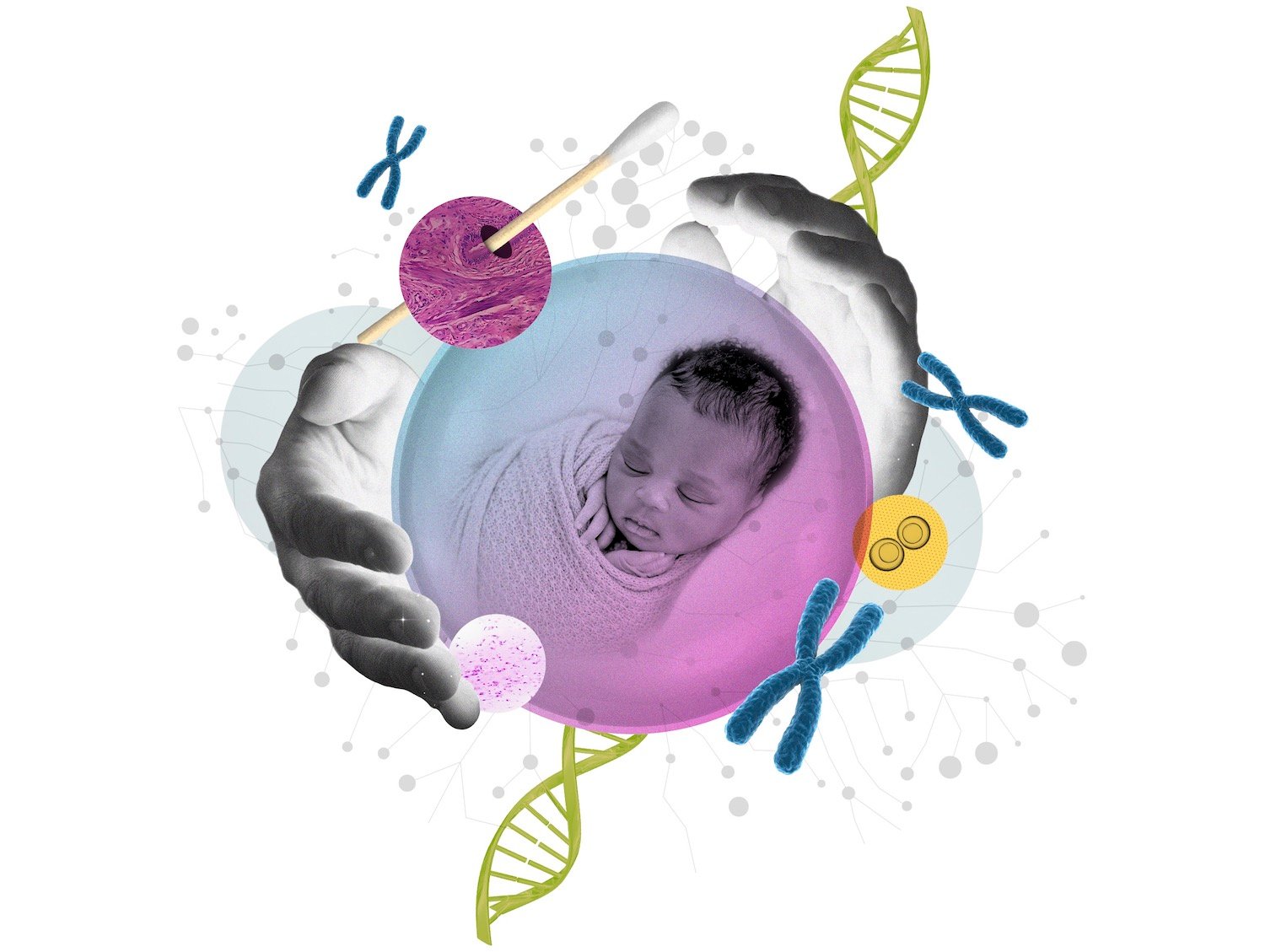If you were given the chance to see into the future, would you take it? For new parents Mandy and Morgan Moseley, the answer was yes. When their baby was just two months old, the couple turned to Fore Genomics for a glimpse of what might be on the horizon. “I have a lot of health issues in my family,” Morgan explains. “I wanted to see what was genetically passed down to my son.”
La Jolla–based Fore Genomics provides a genetic health screen for children that reports on more than 500 different conditions with pediatric onset, giving parents the opportunity to better understand their kids’ health. Humans have over 20,000 genes. By sequencing the whole genome—100 percent of the DNA—Fore Genomics can examine for variants in the genes to determine to which conditions an individual is predisposed. All it takes is a cheek swab.
“Your DNA can tell you if you’re at risk of developing disease later in life,” Matthew Pelo, Fore’s CEO and founder, explains. The test is designed for seemingly healthy children with no symptoms. With early detection, proactive decisions can mitigate health risks before issues even arise.
“Some diseases can be managed through diet, some through lifestyle. With others, you can take medication and potentially delay the onset of symptoms indefinitely,” Pelo says. Pre- and post-test counseling is included with the screening, so parents can be equipped with a tailored care plan for their little one’s health.
For the Moseleys’ child, the screening came up clear. “The only result they found was that ibuprofen isn’t going to work as well for him, which is a good thing to know,” Mandy says. “Babies can’t communicate when pain meds aren’t helping.”
Since Fore Genomics retests each year (a service included in the base price), they will know if any new red flags arise. “If something does come up, we are going to be ahead of it,” Morgan says. She is specifically on the lookout for diabetes, which runs in her family but often goes undetected. “My mom didn’t know she had it and almost died. That’s probably the biggest reason why I wanted to get him tested.”
Currently, the price tag is around $1,500. Pelo says the test cost over $10,000 when he originally launched it at a research institute in New York. He’d like to bring the price down even further, he explains, but it’s an expensive screening to run. Currently, this type of testing is not covered by insurance, so if parents are interested, they have to foot the bill themselves.

To some parents, like the Moseleys, the insight might sound priceless. To others, it could be a portal to a world of anxiety. To avoid stressful news with no course of action, Fore Genomics originally opted to report only on conditions with treatment plans. Pelo tells me that parent advocates pushed for more info. “Even if there’s no approved treatment option, there are still clinical trials, advocacy groups, Facebook groups. There are other ways to get involved,” he says. “Based on their guidance, we’ve expanded what we screen for.”
Genetic testing is not a rare occurrence. Almost every newborn in the US undergoes a state-mandated genetic screening—in California, it covers 80 conditions, including sickle cell disease and rare metabolic disorders. Fore Genomics goes further, testing for hundreds more conditions. “We’re basically newborn screening on steroids,” Pelo says, adding that Fore’s is currently the most comprehensive test that can be done on a child. “We want to give parents access to more information.”
This type of testing differs from NIPT (non-invasive prenatal testing), which screens for conditions in the womb. “There are a couple of companies expanding what can be done [with] NIPT,” Pelo says. “But even then, there are a lot of concerns on what you can and should be reporting on.” Disability advocates have questioned the ethics of terminating a pregnancy based on genetic complications, drawing parallels between NIPT and eugenics. The Fore Genomics Genetic Health Screen is designed for newborns, infants, and children under the age of 5. “The child is already here,” Pelo says. “We want them to live the healthiest life possible.”
A major concern raised by direct-to-consumer DNA tests is data privacy. Companies like 23andMe or Ancestry.com utilize DNA for genealogical purposes, which exempts them from being HIPAA-compliant. Since Fore Genomics uses genetic testing for health and medical reasons, the company still falls under HIPAA and cannot disclose an individual’s health information without consent. However, even under HIPAA, a genetic testing company can sell your data—as long as it’s stripped of any identifying details. According to Pelo, Fore doesn’t do that. “We take data privacy and security very seriously,” he says.
Fore Genomics has to think about the child’s consent, as well. The company only screens for conditions with pediatric onset—not diseases that may arise later in life, like Alzheimer’s or ALS, even though that information is available in the genome. Pelo says it’s up to the child to decide whether they want that knowledge when they come of age.
How long does Fore Genomics hold onto an individual’s sequenced DNA? “Potentially forever,” Pelo says. “The DNA you’re born with is the DNA you die with. So, sequencing at birth can potentially tell you stuff 40 or 50 years later.”
PARTNER CONTENT
Mandy and Morgan Moseley’s son is now 10 months old, and they are expecting a baby girl in 2025. They intend to order a Fore Genomics genetic health screen for her, as well. Many of the conditions in Morgan’s family predominantly affect women, and Morgan herself has a blood clotting disorder, as well as fertility challenges and Hashimoto’s disease. “Men don’t usually have thyroid problems or issues with fertility,” she says.
“Knowing that she’s going to be female, I’m more excited to get her tested.”






















